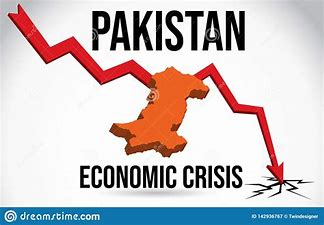Discover the failure of Pakistan to protect investments made by its overseas citizens. Explore the challenges, including the lack of a robust legal framework, corruption, and inconsistent policies. Learn about the impact on overseas citizens and the broader economy. Delve into government initiatives, the role of diplomatic missions, and potential solutions to improve investor protection. Find out how Pakistan can restore trust and confidence to create a favourable investment climate.
Introduction
Pakistan’s attractiveness to foreign investors has declined significantly due to political unrest and the global economic slowdown. It is evident in the 52% decrease in foreign direct investment (FDI) during the July-October period of the fiscal year (FY23) compared to the same period the previous year.
Investing in one’s home country is often seen as a sign of patriotism and a way to contribute to its economic growth. However, when a country fails to protect the investments of its overseas citizens, it not only threatens its financial security but also damages its reputation in the international community. Unfortunately, this is the case with Pakistan, where the failure to safeguard investments has become a significant concern for its overseas citizens.
Pakistan, a country with a rich history and immense potential, has struggled to provide a secure environment for foreign and domestic investments. The protection of investments is crucial for the overall economic development of any nation, as it attracts capital inflow, creates employment opportunities, and fosters innovation. However, Pakistan’s inconsistent policies, lack of an effective legal framework and corruption have contributed to an environment where investors, particularly overseas citizens, face numerous challenges and risks.
Challenges Faced by Pakistan in Protecting Investments
Lack of Effective Legal Framework
One of the primary challenges in protecting investments in Pakistan is the absence of a comprehensive and robust legal framework. Existing laws and regulations lack clarity and fail to provide adequate protection to investors. The ambiguity surrounding property rights, contract enforcement, and dispute resolution undermines the confidence of overseas citizens and discourages them from making substantial investments.
Corruption and Bureaucratic Hurdles
Corruption and bureaucratic hurdles have demolished Pakistan’s investment climate for years. Investors often encounter bribery, favouritism, and red tape (some illegal decorum) when they deal with government agencies and officials. Such practices not only restrict the ease of doing business but also deteriorate trust in the system. Overseas citizens, who are already physically distant, find it exceptionally challenging, leading to frustration and disillusionment.
Inconsistent Policies and Regulations
Another significant factor contributing to Pakistan’s investment protection failure is the inconsistency in policies and regulations. Investors require a stable and predictable business environment to make informed decisions and allocate resources effectively. However, frequent changes in policies, arbitrary decisions, and lack of transparency create an uncertain landscape that hinders long-term investments.
Impact on Overseas Citizens
The failure to protect investments in Pakistan has severe consequences for its overseas citizens. These individuals, who have chosen to invest in their homeland, face significant financial losses and insecurity. The lack of legal safeguards and enforcement mechanisms leaves them vulnerable to fraud, expropriation, and contractual breaches. Consequently, the dreams and aspirations of overseas citizens to contribute to Pakistan’s development are shattered, and they become disillusioned with the country’s investment climate.
Moreover, the deteriorating trust and confidence among overseas citizens have far-reaching implications. Potential investors become distrustful of committing their capital to Pakistan, fearing similar experiences of financial loss and disregard for their rights. As a result, the pool of available investments shrinks, hindering economic growth and job creation.
Government Initiatives and Reforms
Recognizing the importance of protecting investments, the Khan government initiated various measures to address the issue. It introduced investor-friendly policies, such as ease of doing business reforms, streamlined administrative procedures, and incentives for foreign direct investment. These efforts aimed to attract investments, restore confidence, and create a more favourable environment for overseas citizens.
Furthermore, establishing special economic zones and industrial parks showcased the government’s commitment to providing dedicated areas with infrastructure and facilities for investors. These zones offered tax incentives, simplified regulations, and efficient dispute-resolution mechanisms to protect investments.
The first half of the fiscal year 2021-22 witnessed a notable 20% increase in Foreign Direct Investment (FDI), indicating a positive shift in the investment climate after which Khan’s government was overturned. Now have a look at the PDM regime. As per the data published by the State Bank of Pakistan (SBP), foreign direct investment (FDI) in the country experienced a decline, reaching $348 million during the July-October period of the fiscal year 2023. This figure is lower compared to the $726 million recorded in the previous financial year, primarily attributed to reduced investments in the real sector.
Role of Diplomatic Missions and Overseas Organizations
In addition to government initiatives, diplomatic missions play a crucial role in protecting the investments of overseas citizens. Embassies and consulates provide assistance and support to investors, acting as a bridge between them and local authorities. They help navigate bureaucratic challenges, resolve disputes, and raise concerns to higher levels of government. The presence of diplomatic missions gives overseas citizens a sense of security and confidence in their investments.
Furthermore, overseas organizations, such as business associations and chambers of commerce, play an active role in advocating for investor rights and promoting a conducive investment climate. These organizations provide a platform for investors to voice their concerns collectively and collaborate with local authorities to address issues effectively.
Potential Solutions
To address the failure in protecting investments, Pakistan needs to take several steps. Strengthening the legal framework and judiciary is paramount. Clear and well-defined laws that protect property rights, ensure contract enforcement, and establish efficient dispute resolution mechanisms are essential to restore confidence.
Moreover, combating corruption and reducing bureaucratic hurdles are crucial. Transparency, accountability, and merit-based decision-making should be prioritized to eradicate corrupt practices. Simplifying administrative procedures, reducing red tape, and establishing dedicated investment facilitation cells can significantly improve the ease of doing business.
Creating a conducive business environment requires long-term stability in policies and regulations. Consistency, predictability, and transparency should guide the decision-making process. Engaging with stakeholders, seeking feedback, and conducting regular evaluations can help identify areas for improvement and minimize disruptions caused by sudden policy changes.
International Investment Arbitration
To ensure investor protection, exploring the option of international investment arbitration is worth considering. International arbitration provides an impartial and independent mechanism for resolving disputes between investors and the state. It offers enforceable awards and safeguards against biased domestic courts. However, careful consideration should be provided to the potential challenges associated with arbitration, such as costs, enforceability, and the selection of arbitrators.
For further guidance read Standard of Protection Available to Foreign Investors
Best Practices from Other Countries
Pakistan can learn valuable lessons from countries that have successfully protected investments and attracted substantial capital inflows. Singapore, for example, has established a transparent and efficient legal system, implemented investor-friendly policies, and actively promoted economic diplomacy. Similarly, Chile’s stable and consistent regulatory framework has fostered a favourable investment climate. By studying these best practices and tailoring them to their specific context, Pakistan can take effective measures to protect investments.
Importance of Restoring Trust and Confidence
Restoring trust and confidence is critical for attracting investments. Transparency, accountability, and commitment to the rule of law are essential in rebuilding trust among overseas citizens. Establishing independent regulatory bodies and guard offices can ensure fair treatment and prompt resolution of disputes. Emphasizing accountability for public officials and creating a culture of integrity will help restore confidence in the system.
Enhancing transparency in decision-making processes, promoting an open dialogue with stakeholders, and regularly communicating policy updates can create an environment where overseas citizens feel valued and secure in their investments.
Conclusion
Pakistan’s failure to protect the investments of its overseas citizens has severe consequences for the individuals involved and the country’s overall economic growth. The lack of an effective legal framework, inconsistent policies and corruption pose significant challenges. However, with government initiatives, the support of diplomatic missions, and the implementation of best practices, Pakistan can improve investor protection and create a favourable investment climate.
By strengthening the legal framework, combating corruption, and prioritizing transparency, Pakistan can restore trust and confidence among overseas citizens. Protecting investments is not only a matter of economic growth but also a reflection of a country’s commitment to creating a fair and secure business environment.
*Read more about Debt Repayment and Investment Opportunities: Balancing the Financial Future of Pakistan










One Comment